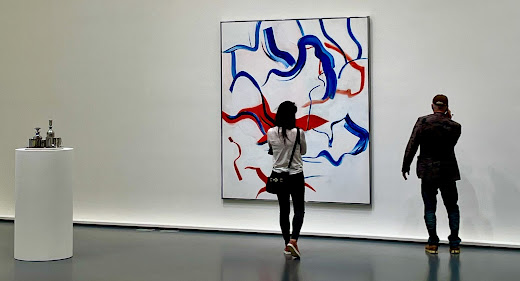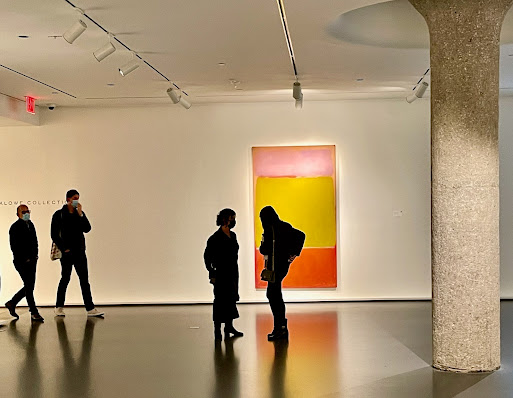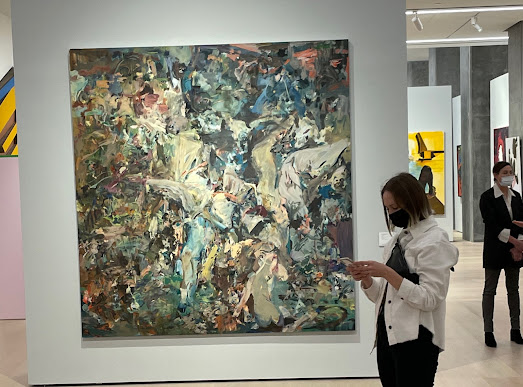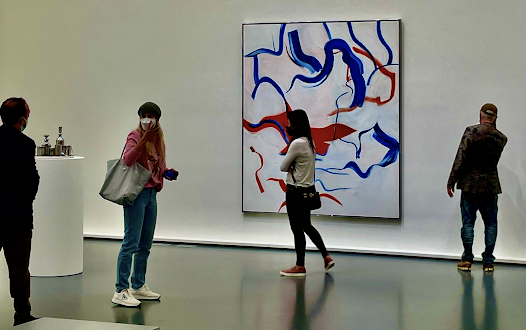(Drivebycuriosity) - It seems that Amazon became the scapegoat. Politicians from the left and right side of the political spectrum want to profile themselves by bashing Big Bad Amazon. Opportunistic senators like David Cicilline are building their career on Amazon bashing. A law student named Lina Khan became famous by publishing an anti-Amazon pamphlet and President Biden put her on the top of the powerful Federal Trade Commission (FTC), America`s trustbuster authority. Elizabeth Warren, Bernie Sanders and other politicians are harassing Amazon, supported by antifa activists like Alexandria Ocasio-Cortez (AOC). The Amazon haters claim that the e-commerce pioneer is a monopoly and abuses its alleged power.
Their claims are unfounded. The real reason of the Amazon hate: The e-commerce company became very big. Politicians dislike big companies, they prefer Big Government.
Is big really so bad? Amazon became a giant because the company is popular with her customers. If Amazon would not serve her customers well, they would walk away. If Amazon would be too expensive, too slow, too inconvenient, the customers would buy elsewhere. The Amazon haters don´t understand these basic facts, maybe they don´t even care.
The crusade is based on false claims. Amazon is not a monopoly. The company is competing against a legion of other firms - and their number is increasing all the time. The success of the e-commerce pioneer
has been
animating a legion of
copycats who also benefit from the ascent of e-commerce (and recently
from the Covid-19 pandemic).
Amazon is competing against huge
traditional retail corporations like Walmart,
Target, Best Buy & Costco who all developed large online
departments. Amazon also competes again pure online companies like Shopify, Overstock,
Wayfair & Etsy who are copying Amazon`s success. The competitors all are
getting better
over the time, challenging Amazon more and more. And people also can shop on huge online platforms run by Meta (Facebook & Instagram) and Google, who both are investing billions to steal a share from Amazon`s pie.
The Internet is intensifying competition because it makes it very easy to compare prices and services and to switch to other suppliers. Customers can choose the company which has the best quality, the best service and/or the lowest price which constrains the power of Big Tech.
The crusaders dislike Amazon`s marketplace department, where others can sell, and they claim
that Amazon treats these third-party-sellers unfair. The bashers want to shut down Amazon`s private label business, where it sells own products in competition with the products from her suppliers. But this business has been part of retail for generations (ben-evans.com). And the private label business is 1-2% of Amazon`s e-commerce sales. Most big retailers have a double-digit percentage of revenue from private label. "The average across different types of retailers tends to be in the 20% region. Amazon has the lowest share of private label sales by far!" ( tanay.substack).
Amazon`s quarterly reports show that Amazon’s
retail partners are growing even faster than Amazon`s own online shops and
more than 50% of the sales from Amazon`s website are from third-parties.
Many of these sellers became large companies themselves. Obviously
these third-party-sellers benefit from Amazon, because Amazon´s platform
gives them access to markets they could not reach otherwise or only with much higher costs.
If these third-party seller would be unhappy with Amazon´s services they could switch to different platforms. Even traditional retailers like Walmart have now their own third-party seller programs and compete with Amazon. The third-party sellers also could choose fast growing online platforms like Etsy & Shopify. Even Facebook (and their daughter Instagram) and Google developed online platforms where companies can sell their products & services, independent from Amazon.
FTC leader Khan and her crusaders ignore that the society benefits from Amazon. Even
in the peak of the pandemic the company has been capable to support millions
of customers and was able to deliver a huge amount of goods to everywhere in the
US in very short time. Amazon could fulfill the gargantuan task of
supplying America in a crisis because of her sheer size, a dense network
of fulfillment centers and a lot of experience in stocking goods and in
logistics.
Amazon saved potentially many lives - especially of elderly and disabled individuals - by making it possible for them to shelter at home during the current pandemic, shop online and receive necessary goods at their front door in a short time.
Today Amazon helps her customers to deal with the current inflation by rising her prices slower than her costs. Amazon CFO Brian Olsavsky declared “we see ourselves as the shock absorber, absorbing a lot of the costs so that the customer is not impacted and sellers are not impacted."
Amazon has been hiring hundreds of thousands in the pandemic and employs 1.3 million people around the world, with 950,000 of those in the US ( google). The company pays a minimum salary of $15 and spends billions of dollars for safety. Amazon provides health care and funds full college tuition, high school diplomas, GED diplomas, and English as a Second Language proficiency certifications for its U.S. front-line employees. Amazon founder Jeff Bezos
declared that Amazon"wants to be the best employer of the world".
(statista. )
Amazon`s success helped many other companies - including small retailers (Amazon`s competitors) - to survive the crisis. Amazon offers a platform for any company (or individual) to sell products online. The e-commerce giant also supplies logistic services for other companies, including storage, packing and transporting. The giant invested in the pandemic year 2020 year more than $18 billion to help independent businesses grow their sales on Amazon. With the help of Amazon other companies, including even small retailers, are also able to sell products nationwide - and often globally. Many of these retailers would not exist without Amazon’s platform.
The trustbusters claim that Amazon stopped the growth of innovative companies and of new online sellers. Not true! The Canadian e-commerce platform Shopify, founded in 2006, reached a market capitalization of about $210 billion, Wayfair, an e-commerce site for home supplies, started in 2002 and reached a market capitalization of around $30 billion and Casper, launched in 2014, who sells mattresses online, became a brand name almost over night.
Today Amazon accounts for less than 1% of the $25 trillion global retail market and less than 4% of retail in the U.S. More than 80 U.S. retailers have annual revenues of more than $1 billion, including Walmart, whose revenues are more than double those of Amazon. Online sales account only for about 25% of the total retail sales (reason ).
The trustbusters also dislike that Amazon`s AWS (Amazon Web Services) department is the market leader in the fast growing cloud computing business. AWS gives other companies, even small start ups, cheap access to huge computer power and artificial intelligence (machine learning). Amazon cloud enables companies worldwide to process a flood of data created and to deal with organizational problems. AWS - and other Amazon services - helped many companies to stay in business during the pandemic and to participate in the recovery. And AWS is challenged by Microsoft, Google, IBM, Oracle and other companies who also want to have a large piece from Amazon´s pie and offer their own cloud services. And Microsoft`s & Google`s cloud businesses are growing even faster than AWS.
Lina Khan, Tim Wu and other professional trustbusters don`t care that Amazon creates a lot benefits for her customers, employes and the society. Khan & Co. want to implement more bureaucracy and foster their own careers. Politicians, like Republican Senator Josh, are notching up their career wins by targeting the Big Tech bogeymen (washingtonexaminer). More regulation encourages corruption because powerful politicians & bureaucrats can blackmail corporations by threatening them to regulate them more (ssrn.com).
The crusade gets a lot media attention which might attract potential voters and impress political leaders. The trust busters also want to gain more power and acquire more access to tax payer`s money. Lina Khan & Co. seek to expand their budgets and demand more onerous reporting requirements, so they can expand their offices and hire more people which in return gives them more political influence, prestige and higher incomes. "All of this is coupled with an oversized federal presence for enforcement, from greater congressional oversight to enhancing the powers of both the Department of Justice and the Federal Trade Commission through expanded budgets, more onerous reporting requirements, and an invigorated use of merger retrospectives" writes Wayne T. Brough (aier.org ).
Washington`s
anti-Big-Tech crusade employs thousands of high paid
lawyers - and President Biden is compliantly expanding their number. These
brigades are burning a lot of tax payers money which could be used
for education, health care or the ailing infrastructure. The anti-tech crusade creates a lot of
highly attractive job opportunities for anti-trust lawyers like Lina
Khan and
university employees which attracts many young talents. Instead of moving
into technology, medical research and other sciences, which would
benefit the
society, these people are wasting their talents in unproductive
skirmishes. As a result the anti-tech crusade is slowing down economic
growth and harms everybody who
does not live from the money of the taxpayers.
The crusade is harming Amazon and other companies which are popular with their customers - the majority of the Americans - because their services are either for free or cheap. Amazon is doing a great service to the society, the US economy and the US consumers. The crusade is irresponsible and moronic.
















































